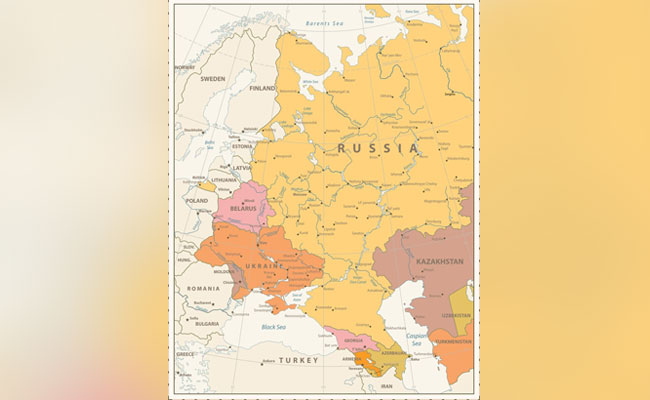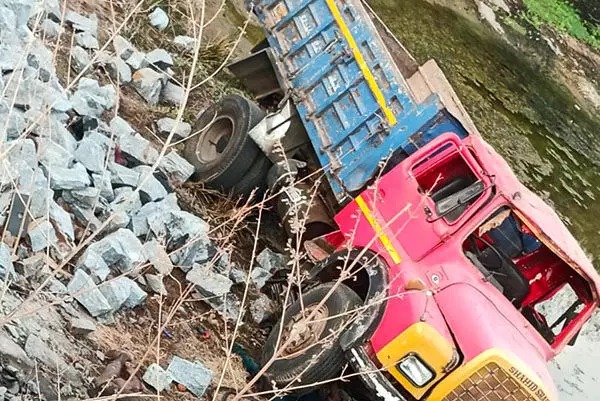In recent news, it has been reported that Russia is planning to station tactical nuclear weapons in Belarus, which has sparked concerns among the international community. This move by Russia has raised questions about the country's intentions and its impact on global security. Russia deployed weapons in Belarus because it is one of the closest and few remaining allies of Russia. It is predominantly Orthodox like Russia with its population almost entirely-Russian speaking. Belarus is a member of the Russian-led military alliance, the Collective Security Treaty Organization, as well as the Eurasian Economic Union. Belarus occupies a strategic position in Eastern Europe due to its location between Russia and Ukraine, as well as its proximity to three NATO member states - Lithuania, Latvia, and Poland. This makes Belarus an important player in regional politics and a key ally for Russia's power projection in the region.
Controversy Surrounds UK's Decision to Send Depleted Uranium Munitions to Ukraine
Russia's decision to station nuclear weapons in Belarus can be attributed to several factors. Major factor behind Russia's decision is the ongoing conflict in Ukraine.The conflict has led to sanctions against Russia and a deterioration in relations with the West. By stationing nuclear weapons in Belarus, Russia is sending a message to the West that it is willing to use force to protect its interests.
Another reason is the deteriorating relationship between Russia and NATO. NATO's expansion towards Russia's borders has been a major source of tension between the two sides. Russia sees NATO's expansion as a threat to its security and has responded by increasing its military presence in neighbouring countries. Moscow's deployment of tactical nuclear weapons in Belarus has raised concerns among the international community, particularly neighbouring countries such as Latvia, Lithuania and Poland. This deployment is a warning to these countries to avoid escalation or face the consequences. While Moscow could have deployed these weapons secretly, the fact that it has announced their deployment suggests that it wants to send a message to NATO.
The stationing of nuclear weapons in Belarus has raised concerns among neighbouring countries and the international community. The deployment of nuclear weapons is seen as a destabilising factor in the region and could lead to a new arms race. However, Moscow argues that The deployment of tactical nuclear warheads is meant to gain an advantage on the battlefield, rather than for large-scale destruction, Belarus has also stated that it has no intention of acquiring nuclear weapons and that it will only host Russian weapons as part of a mutual defence agreement.
Moscow also believes that NATO has been positioning nuclear weapons in Europe, and the United States has several nuclear stations in foreign territories. In addition, Moscow sees the provision of nuclear submarines to Australia under the AUKUS agreement and Iran's uranium enrichment at 80% as violations of non-proliferation laws. North Korea is also mentioned as a state that has disregarded these laws.
The UK has also announced that it will be sending depleted uranium munitions to Ukraine as part of its military aid package to the country. The UK has said that the depleted uranium munitions it is sending to Ukraine are designed to be used against Russian tanks and other armoured vehicles. The British government has argued that these weapons are necessary to help Ukraine defend itself against Russian aggression.
Many argue that the use of depleted uranium in military operations has been controversial for many years, with some countries banning its use altogether. The UK has used depleted uranium in military operations before, including in Iraq and Kosovo, where it has been linked to increased rates of cancer and birth defects among civilians. The decision to send depleted uranium munitions to Ukraine has also raised concerns about the environmental impact of the weapons. Depleted uranium can contaminate soil and water for generations, and can have a devastating impact on local ecosystems.
Depleted uranium is a byproduct of uranium enrichment, which is used to produce fuel for nuclear power plants and weapons. Depleted uranium is dense and hard, which makes it useful in military applications, such as armour-piercing rounds and missiles. However, it is also highly toxic and radioactive, and its use in military operations has been controversial for many years.
International Cooperation Key to Preventing Proliferation of Nuclear Weapons
After such incidents many smaller states have begun to believe that nuclear weapons are the best guarantee for their security from powerful neighbours. If Ukraine had been nuclear, Russia may not have invaded. This sentiment has become popular among smaller states. Poland, which shares borders with its Russian ally but is a NATO country has long desired to host US nuclear weapons, which it believes will act as a deterrent against any potential aggression from Russia.
Poland has been wary of Russia's intentions ever since the annexation of Crimea in 2014, and it sees the presence of US nuclear weapons as a way to counterbalance Russia's military might. Critics argue that Poland's decision to host US nuclear weapons could lead to an escalation in tensions in the region, and could even lead to a nuclear conflict. Moscow has already warned that the deployment of US nuclear weapons in Poland would be a serious violation of the Russia-NATO Founding Act, which prohibits the deployment of nuclear weapons in new NATO member states.
Finland officially became a member of NATO, in a move aimed at enhancing its security and defence capabilities, given Russia's growing military presence in the area. The decision to join NATO is viewed as a means of deterring potential Russian aggression and bolstering Finland's security.
The actions of Russia and its allies are viewed as a response to perceived threats from NATO and the West, while smaller states are increasingly turning towards nuclear weapons as a means of guaranteeing their security. The situation highlights the importance of international cooperation and dialogue in resolving conflicts and preventing the proliferation of nuclear weapons. It is crucial for all parties involved to prioritise peace and stability in the region, rather than resorting to military aggression and escalation.

Girish Linganna
Aerospace & Defence Analyst
Let the Truth be known. If you read VB and like VB, please be a VB Supporter and Help us deliver the Truth to one and all.
Bengaluru: The Royal Challengers Bengaluru (RCB) have qualified for the playoffs of IPL 2024 after defeating the Chennai Super Kings (CSK) by 27 runs in a thrilling match at the M. Chinnaswamy Stadium on Saturday.
RCB, captained by South African cricketer Faf du Plessis, emerged victorious in this crucial match to secure their spot in the playoffs. However, the lost match is tragically significant to Chennai Super Kings' key player M S Dhoni, for whom it is believed to be the last IPL season.





